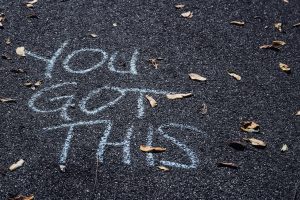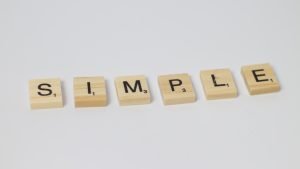In today’s episode, I talk about the Gap and the Gain mindset. You can get the book on Amazon here.
Transcript
Hello and welcome back to another episode of the Minimal Minds Podcast. I’m your host. My name is Alex and today we’re gonna be talking about something called The Gap and the Gain, which is a mindset I learned about in a book called The Gap and the Gain by Dan Sullivan and Dr. Benjamin Hardy. This book, which I highly recommend by the way, explores the concept of achieving success by focusing on progress and growth rather than comparing yourself to others.
The book emphasizes the importance of embracing your unique journey and measuring success based on personal growth and development rather than external benchmarks. The authors introduced the concept of the gap as the space between where you currently are and where you want to be. They argue that constantly comparing yourself to others or to an idealized version of success can lead to feelings of dissatisfaction and discouragement.
And the gap mindset is very common and I’d argue it’s the default mindset that most people have, whether they realize it or not. So here’s an example. Let’s say I train to do a 10k run and let’s say at the moment I can barely run 2k without having to stop because I’m out of breath and my legs hurt or something like that.
So I train for weeks and weeks and I slowly get better and then I attempt the 10k run, but I end up finishing dead last and then I sulk about it because literally every single person who competed did better than I did. That’s a Gap Mindset. I’m completely ignoring the fact that I could only run 20% of that distance just weeks ago.
The Gap Mindset is not how you reach the optimum level of performance and having an unhealthy need or obsession to achieve something or be a certain way is not how you reach your highest level. Being in the Gap Mindset means you are driven by unhealthy needs. But having a Gain Mindset, which we’re just about to talk about, is driven by a healthy and chosen want, not a need.
The Gain Mindset refers to the progress made and the growth achieved along the way. If I had a Gain Mindset in that situation, I’d say, wow, I’ve increased the distance I’m able to run by five times in just a few weeks of training. That’s a huge achievement. It does not matter that other people did it faster than me.
I am not competing against them. And being in the gap mindset actually has a physical effect on you, like you’ll feel anxious and stressed and miserable. But the Gain Mindset, on the other hand, is the most powerful and energizing context for viewing any experience. And here’s the thing, you can choose to view any experience with a Gap Mindset or a Gain Mindset.
Let’s say you’ve just gone through a nasty breakup. If you’ve got a Gap Mindset, you’ll just be focusing on what you’ve lost. Maybe you concentrate on how you feel like you’ve been mistreated. But if you have a Gain Mindset, you’d be focused on what you’ve learned from that experience and you’d be thinking…
Wow, that didn’t work out at all. Why is that? What did I do to contribute towards this relationship not working and what can I do to avoid that next time and what qualities does my now ex partner have that I will not tolerate in my next potential relationship? It sounds a bit clinical but learning from your experiences is the best gift you can give yourself It’s important to note, though, that you can still have a gain mindset about something that is objectively bad and not enjoyable, and not be positive about it, if that makes sense.
It’s not about being positive about every situation, because that’s unrealistic and also kind of toxic. The goal is to make every experience, whether that be good or bad, to serve you in some way. Being in the gap mindset completely removes the reward of any positive experience you have or progress you make towards anything.
Being in the gain mindset not only makes you happier, but you’ll also become more resilient to any challenges you’re going to come across. The book also provides practical strategies and mindset shifts to help you shift your perspective and embrace a more empowering approach to success. It emphasizes the significance of setting clear goals, taking consistent action, and celebrating incremental progress.
And I can’t overstate the importance of celebrating the little wins. It’s something that I struggle with myself. But recognizing the small achievements and signs of growth is so… So important. Those small victories will inevitably be what keeps you going when you’re running low on motivation towards achieving something big.
Another concept the book talks about is always measure backwards, not forwards. And this means instead of comparing yourself to a hypothetical version of yourself, which typically will only make you feel bad about yourself and that you’re not enough, instead all you want to do is look back at how you were doing in the past and then measure how much you’ve improved since then.
And if you keep doing that, You’ll end up feeling much better about yourself, because it’s objective progress you can actually see. Like, you’ve got measurable improvement right in front of you, that you’ve made progress. So, in summary, there are two ways of looking at your life and your experiences.
There’s the gap mindset, which is where most people are. They concentrate on how bad things are, and what they’ve lost, and so on. And then there’s the gain mindset, which is where you want to be. People with this mindset look for things they can learn from every experience, and even if the outcome isn’t what they originally hoped for, they look for the benefits of that experience.
People with a gain mindset also measure themselves against how they are now versus how they used to be and not how they are now versus how they want to be. So check out this book. It’s really good. Link in the show notes. I really think you’ll enjoy it. I hope you gained value from this episode. And if you’d like to check out my ebook titled self development starter guide, you can get it for free by signing up to my self development newsletter at theminimalminds.com. And if you want to support the show, check out the link in the description, get yourself that book. And thank you so much for listening. I will see you in the next episode.




